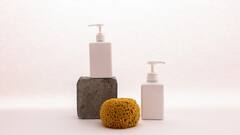Atopic Dermatitis, Why It Is More Than Just A Skin Allergy And What Is The Treatment
Atopic Dermatitis usually arises in the elbow folds and back of the knees in adults and older children. In infants, AD typically affects the face, neck, scalp, elbows, and entire body.

Written by Dr Sushil Tahiliani
The most generic form of eczema is Atopic Dermatitis (AD) which affects one out of every five children. The term "dermatitis" refers to inflammation of the skin. The condition is common amongst young children and is also seen in adults. People living with AD often experience chronic infections like dry, itchy, and inflamed skin.
Over time with chronic itch, the skin becomes thickened. The itch impulse is heightened, and the "itch-scratch" cycle occurs frequently, propagating the inflammation. Frequent scratching of the itchy skin can lead to a number of problems, including infections and pigmentation.
The disease usually begins at an early age, but some affected individuals continue to have the problem into adulthood, while others don't experience it until adulthood. AD usually arises in the elbow folds and back of the knees in adults and older children. In infants, AD typically affects the face, neck, scalp, elbows, and entire body.
Outbreaks intensify during periods of stress, such as before exams and during very extreme weather. Excessive sweating is another trigger. The severity of a rash can vary from mild to intense and reduces the quality of life of a person with AD.
Researchers have discovered that individuals with atopic dermatitis have mutations in the filaggrin gene, which regulates skin moisture retention. The environmental conditions can also alter the skin's protective barrier to a person's immune system, causing skin moisture to leak out of the skin and lead to dermatitis.
Patients with this severe skin condition also experience asthma attacks and psychological symptoms like insomnia, anxiety, and depression. It is not uncommon for adults with even mild AD to experience profound disease burdens, which significantly affect their quality of life, putting them at an increased risk of anxiety, depression, and suicide.
The oozing and crusting lesions associated with the disease can cause social isolation in patients with moderate to severe cases. Likewise, skin pain and itching can disrupt sleep, resulting in poor academic or occupational performance. The quality of life of patients suffering from moderate to severe AD is negatively affected.
It is known that there is no cure for AD, effective treatments are available to manage eczema and keep patients comfortable so that they can go about their daily activities. The person should first a dermatologist to seek therapy, wherein he/she can identify triggers for the disease. Using body oil and lotion immediately after bathing helps retain moisture and keeps the skin greasy. Avoid using harsh and scented soaps with scented oils as it usually causes dryness and irritation.
Doctors may also prescribe ointments and medicated lotions to improve skin hydration and restore skin barriers. Medication for topical use can also be prescribed, but it should be used under medical supervision. In some cases, it may be necessary to use oral medication to settle the inflammation.
Atopic dermatitis doesn’t have a cut-off age at which the condition will completely stop. It is usually persistent, and patients may experience occasional flare-ups. Genetics and lifestyle play a major role in AD. It is important for government health authorities in India to understand that people with moderate-to-severe forms of AD may need access to newer therapies, such as biologics. With access to these newer therapies in the country, those suffering from moderate-severe AD may have options to effectively manage the AD and receive much-needed relief from the disease.
The author is MD, DV&D Consultant Dermatology Hinduja Hospital, Mumbai
Check out below Health Tools-
Calculate Your Body Mass Index ( BMI )
Trending News
Top Headlines






































